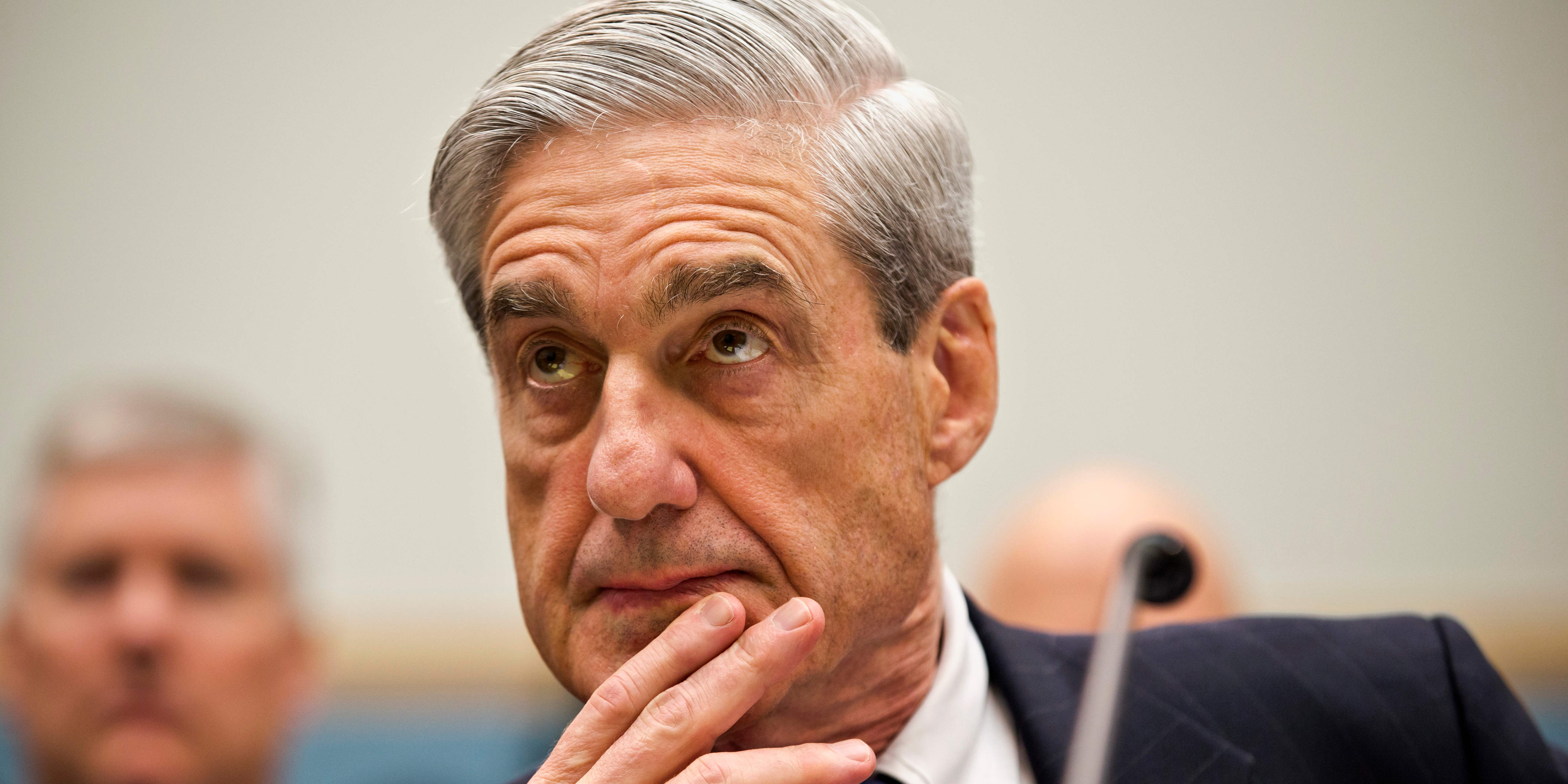- The special counsel Robert Mueller’s move to subpoena the Trump Organization brings him ever closer to President Donald Trump’s personal finances – a “red line” Trump warned him against crossing.
- Trump said last year that he does not “make money from Russia.” But his son, Donald Trump Jr., wrote in a 2008 op-ed that a large chunk of the family’s wealth flows in from Russia.
- Mueller’s subpoena likely indicates the Trump Organization has something of value to prosecutors, and that they want to “leave no doubt publicly or to Trump [that] this is important to them,” said one legal expert.
The special counsel Robert Mueller’s reported decision to subpoena the Trump Organization for documents related to its dealings in Russia shows he is not only homing in on President Donald Trump, but that Mueller believes the company has information crucial to the Russia investigation.
Mueller, who was appointed to oversee the investigation last year, is probing Russia’s interference in the 2016 US election and whether Trump’s campaign colluded with Moscow.
As part of that investigation, he has drilled down in recent weeks on the Trump family’s dealings with Russia and other foreign governments to gauge whether outside entities used the Trumps’ financial interests to influence the president’s policies and platform.
Mueller’s decision to subpoena the Trump Organization instead of merely requesting the documents suggests he “has reason to believe that the Trump folks have something of interest,” said Michael Gerhardt, a constitutional law expert who once served as a federal special counsel. “It is not likely to be a fishing expedition for no good reason.”
Gerhardt said there could be a few reasons why Mueller subpoenaed the business.
"One is that perhaps they anticipated resistance so they cut to the chase," he said. "The other is the Trump folks were already resisting on this or other stuff."
The third, he added, is that Mueller's team is playing "hard ball" to "leave no doubt publicly or to Trump [that] this is important to them."
Alan Dershowitz, a professor at Harvard Law School, echoed the third point. "When a subpoena is issued it becomes a crime to destroy records," he said. "Perhaps prosecutors want to send a message."
Asked by The New York Times' Michael Schmidt and Haberman last year about whether an investigation into his finances would breach a red line,Trump answered, "I would say yeah."
"I don't make money from Russia," he continued. "In fact, I put out a letter saying that I don't make - from one of the most highly respected law firms, accounting firms. I don't have buildings in Russia. They said I own buildings in Russia. I don't. They said I made money from Russia; I don't."
The comments appear to stand in contrast to those made by Trump's eldest son, Donald Trump Jr., in a 2008 New York Times op-ed. The younger Trump wrote, "In terms of high-end product influx into the US, Russians make up a pretty disproportionate cross-section of a lot of our assets."
"Say, in Dubai, and certainly with our project in SoHo, and anywhere in New York," he added. "We see a lot of money pouring in from Russia."
'Mueller will get the documents he wants'

The Trump Organization was also pursuing a deal to build a Trump Tower in Moscow as recently as late 2015 and early 2016, at the height of the presidential election.
Trump signed a non-binding letter of intent for the deal that was dated October 13, 2015.
Trump's longtime personal lawyer, Michael Cohen, and the Russian-born businessman, Felix Sater, took point on pushing for the deal.
In a series of emails the two men exchanged weeks later, Sater bragged about his relationship with Russian President Vladimir Putin and told Cohen he would "get all of Putin's team to buy in" on the deal.
"Our boy can become president of the USA and we can engineer it," Sater wrote, according to The Times. "I will get Putin on this program and we will get Donald elected."
Sater walked back his claims in a recentinterview with BuzzFeed, saying he did not know Putin and that he made an exaggerated claim about his relationship with the Russian leader to secure the deal.
The breadth and scope of documents Mueller is seeking from the Trump Organization remain unclear. But whatever he obtains may "provide evidence that witnesses lied under oath and can also be evidence regarding events that we already know are under investigation," wrote former federal prosecutor Renato Mariotti.
"If documents are destroyed, that could be obstruction of justice," he added.
Meanwhile, Mueller's approach to dealing with the Trump Organization reflects that taken by most prosecutors investigating corruption and financial crime. Conversely, because the White House has been cooperating with the probe since it began, Mueller has merely sent document requests their way as opposed to subpoenas.
"Trump's commingling of his political and business affairs might ultimately be his Achilles heal," said Jens David Ohlin, a vice dean at Cornell Law School and an expert on criminal law. "Typically, a president might assert executive privilege in an attempt to shield documents and other evidence from public view. But there's no way that the Trump Organization, as a cooperation, or its officers and employees, can assert executive privilege."
Mariotti noted that the special counsel's decision to subpoena the Trump Organization may have been part of an effort to cast a wide net allowing him to compel the production of a vast array of documents and records beyond what may immediately be necessary to continue the investigation.
Once prosecutors can bring the subject of a subpoena to the negotiating table, they can narrow the request, he added. "The broad language in the subpoena, and the requirement to comply with the subpoena, gives the prosecutor the upper hand in that negotiation."
Either way, Ohlin said, "Mueller will get the documents he wants."
